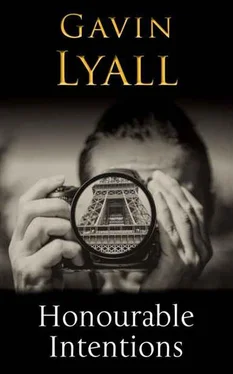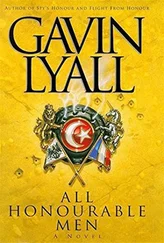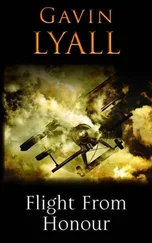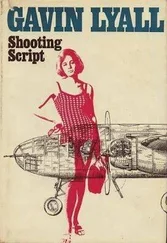“I just thought it might help Berenice.”
“Anyways, how can I leave me own clothes here?”
“I can carry them out in one of Gorkin’s bags.”
“But I . . . Ye jest can’t . . .”
“If you can’t do it, you can’t. Never mind.” Ranklin’s face was all innocence; he might have been asking for the loan of a match.
“Ye connivin’, stinkin’ bastard . . .”
When the strolling gendarme was about forty yards from the apartment house entrance, Ranklin turned that way, put the bag down on the pavement, took out his pipe, and lit a match. That was the signal. The gendarme was only ten yards away when O’Gilroy came out, turned towards him, then abruptly turned about and hurried off the other way, skirt swirling and shawl clutched around his shoulders, face invisible behind the thick veil. He even had a surprisingly feminine tittuping scurry, given that he had to have kept his own shoes. First Connelly, now a Woman Of The Streets; next King Lear? Or even Portia?
And he had certainly impressed his audience. For a moment, the gendarme looked like hurrying after the “woman”, and Ranklin was ready to intervene with a query. Then the man checked and went back to strolling. But he should remember. (And would probably get a roasting for having failed to catch a murderess, too. Still, that would be a helpful lesson for him.)
Walking briskly after O’Gilroy but on the opposite side of the road, Ranklin wondered if he would ever put this in his report. Jay, in particular, would get a kick out of . . .
Damn. He kept forgetting.
Some people take a long time to die – in your mind, that is. Some people are struck off the memory immediately; you remember them only as dead. But others, you keep expecting them to come into the room, are constantly thinking “I must tell so-and-so that” before you remember. Unfair, really.
It took until Tuesday for St Claire to squeeze a passport out of the consulate for “Mrs Simmons”; strictly, she didn’t have to have one, but as Ranklin kept patiently pointing out, it’s the guilty who actually need paperwork to prove their innocence. He didn’t want her meeting any officials, French or British, without some proof of who she now was. If she got flustered and relapsed into Mrs Langhorn, they were both in trouble.
So they crossed the path of the King, coming in the opposite direction. Calais was daubed with crossed flags of the two nations and red-white-and-blue bunting (it was lucky the same colours did for both), with a royal train and Guard of Honour drawn up on the quayside.
The cross-channel steamer had been diverted to the other side, and Mrs Langhorn and Ranklin watched as the Royal Yacht Alexandra slid cautiously alongside, perhaps a hundred yards away. A band on the quayside struck up “God Save the King”. Ranklin and all the other Britons on deck stood stiffly to attention, of course, and indeed nobody seemed to be moving except the poor bugger on Alexandra’s foredeck who had made a seamanlike choice between securing the mooring-rope or standing rigid while royalty drifted away.
There was a bustle of people coming up the gangway, a flurry of salutes, and then a short, stocky figure in naval uniform with a lot of gold braid and a flat cap – he was wearing undress uniform – moving among them.
“What’s he doing?” Mrs Langhorn asked.
“Dishing out medals to the mayor and it looks like a couple of local generals.”
“What have they done?”
“Been here. Easiest honours they’ve ever earned. And they fight like cats for them.”
After a while, she said: “He does it very well.”
He leant back from the rail to look at her. She was watching intently across the scummy harbour water and looking . . . he could only describe it as “pleased”.
The party on the Alexandra broke up and trooped ashore. There were a lot of them, most of the men in uniform, and several women, including the unmistakably old-fashioned figure of the Queen. Then nothing for several minutes except some military shrieking. “What’s he doing now?”
“Inspecting the Guard of Honour on the quay.”
“And what’ll he be doing in Paris?”
“Meeting the President, of course, driving round in a carriage . . . big dinners here and there, seeing some army manoeuvres, some show at l’Opera, the races at Auteuil, opening some exhibition . . .”
“Keeping pretty busy.”
“Not much time for a cup of coffee and a browse at the newspapers,” Ranklin agreed.
“I don’t think I’d’ve liked it much,” she said matter-of-factly.
There was a burst of cheering from the far quay, then the train let off a blast of steam, chugged hard and began to pull out. The band started “God Save the King” again and they all had to stand up straight. The train snaked slowly around the inner basin of the port and was gone, just a moving plume of smoke rising above the rooftops.
Their own steamer woke up with shouted orders and clanging bells, and passengers wandered away to the saloons or to wave goodbye to friends on the land side. Mrs Langhorn lingered by the rail and Ranklin waited politely.
“He wouldn’t know you were watching, would he?” she asked.
“No.”
“I bet he doesn’t even know what you’ve been doing for him.”
Ranklin just nodded.
“He certainly wouldn’t know I’d been watching.”
On an impulse, and because if he didn’t ask now he never would, Ranklin said: “Is Grover really his son?”
She looked back at the smoke drifting over the town. And finally she said: “You know . . . I honestly don’t know.” She looked at him and smiled perkily. “A girl’s got to make a living, hasn’t she?”











